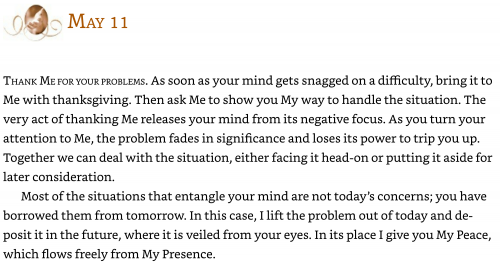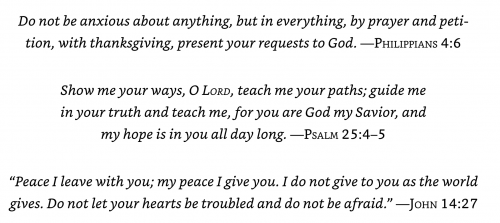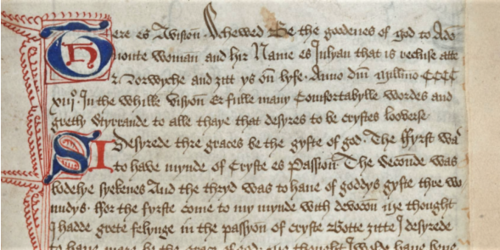
Julian of Norwich
A Mystic for Our Times
Sunday, May 10, 2020
Recently I have again been reading Lady Julian of Norwich (1342-1416), one of my all-time favorite mystics. Each time I return to her writings, I always find something new.
Julian experienced her sixteen visions, or “showings” as she called them, all on one May night in 1373 when she was very sick and near death. As a priest held a crucifix in front of her, Julian saw Jesus suffering on the cross and heard him speaking to her for several hours. Like all mystics, she realized that what Jesus was saying about himself, he was simultaneously saying about all of reality. That is what unitive consciousness allows you to see.
Afterwards, Julian felt the need to go apart and reflect on her profound experience. She asked the bishop to enclose her in an anchor-hold, built against the side of St. Julian’s Church in Norwich, England. Julian was later named after that church. We do not know her real name, since she never signed her writing. (Talk about loss of ego!) The anchor-hold had a window into the church that allowed Julian to attend Mass and another window so she could counsel and pray over people who came to visit her. Such anchor-holds were found all over 13th- and 14th-century Europe.
Julian first wrote a short text about the showings, but then she patiently spent twenty years in contemplation and prayer, trusting God to help her discern the deeper meanings to be found in the visions. Finally, she wrote a longer text, titled Revelations of Divine Love. Julian’s interpretation of her God-experience is unlike the religious views common for most of history up to her time. It is not based in sin, shame, guilt, fear of God or hell. Instead, it is full of delight, freedom, intimacy, and cosmic hope. How did she retain such freedom, we ask? Maybe and precisely because she was not a priest, ordained to speak the party line?
As I read her words this time, what strikes me is the similarity between Julian’s time and our own. Here is how author, scholar, and Episcopal priest Mary Earle describes Julian’s fourteenth-century context:
Julian lived at a time of vast social, [religious,] and political upheaval, incessant wars, and sweeping epidemics. Norwich, with a population of around 25,000 by 1330 . . . was struck viciously by the plague known as the Black Death. At its peak in the late 1340s in England, it killed approximately three-fourths of the population of Norwich. A young girl at this time, Julian was certainly affected in untold ways by this devastation. When the plague returned, she was about nineteen. . . . [1]
In her anchor-hold, Julian may have recognized the potential spiritual benefits of “social distancing” during a time of crisis, such as the awakened ability through solitude to be personally present to divine love. Yet we must remember that she also let God’s love flow right through her to those on the street requesting her counsel, and to us through her writings.
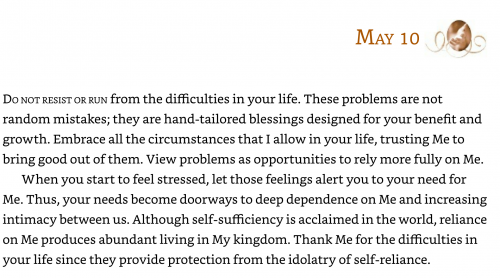
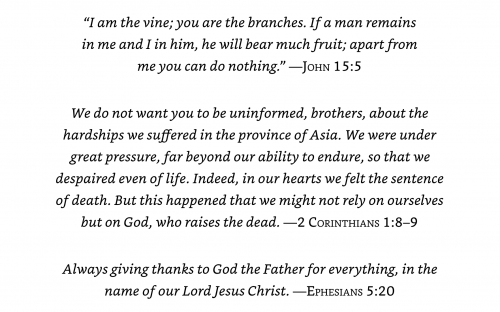
A Perennial Wisdom
Monday, May 11, 2020
Although Julian of Norwich is an anonymous woman who lived over 600 years ago, seekers and scholars return to her “showings” again and again. Author Veronica Mary Rolf describes why Julian’s wisdom is perennial, valuable, and needed whenever there is confusion and suffering, which is to say, in every time and place. Rolf writes:
Perhaps the best answer to the question “Why Julian now?” is that in our age of uncertainty, inconceivable suffering, and seemingly perpetual violence and war (not unlike fourteenth-century Europe), Julian shows us the way toward contemplative peace. . . . In a world of deadly diseases and ecological disasters, Julian teaches us how to endure pain in patience and trust that Christ is working to transform every cross into resurrected glory. . . .
Moreover, across six centuries, Julian’s voice speaks to us about love. She communicates personally, as if she were very much with us here and now. Even more than theological explanations, we all hunger for love. Our hearts yearn for someone we can trust absolutely—divine love that can never fail. Julian reveals this love because, like Mary Magdalene, she experienced it firsthand. . . .
Precisely because she had the courage of her convictions, Julian of Norwich became the first woman ever to write a book in the English language. . . . Even more, this “unlettered” woman developed a mystical theology that was second to none during the fourteenth century and that continues to break barriers in our own time. . . .
Julian is also emotionally raw, often tempted by self-doubt and discouragement, yet constantly renewed in hope. She does something extremely dangerous for a layperson living in the fourteenth century: she discloses her conflict between the predominant medieval idea of a judgmental and wrathful God and her direct experience of the unconditional love of Christ on the cross. . . .
Why is Julian so appealing today? I think because she is totally vulnerable and transparently honest, without any guile. She is “homely”; in medieval terms, that means down-to-earth, familiar, and easily accessible. She is keenly aware of her spiritual brokenness and longs to be healed. So do we. She experiences great suffering of body, mind, and soul. So do we. She has moments of doubt. So do we. She seeks answers to age-old questions. So do we. Then, at a critical turning point in her revelations, she is overwhelmed by joy and “gramercy” (great thanks) for the graces she is receiving. We, too, are suddenly granted graces and filled to overflowing with gratitude. Sometimes, we even experience our own divine revelations.
Again, and again, Julian reassures each one of us that we are loved by God, unconditionally. In her writings, we hear Christ telling us, just as he told Julian, “I love you and you love me, and our love shall never be separated in two.” [1]
